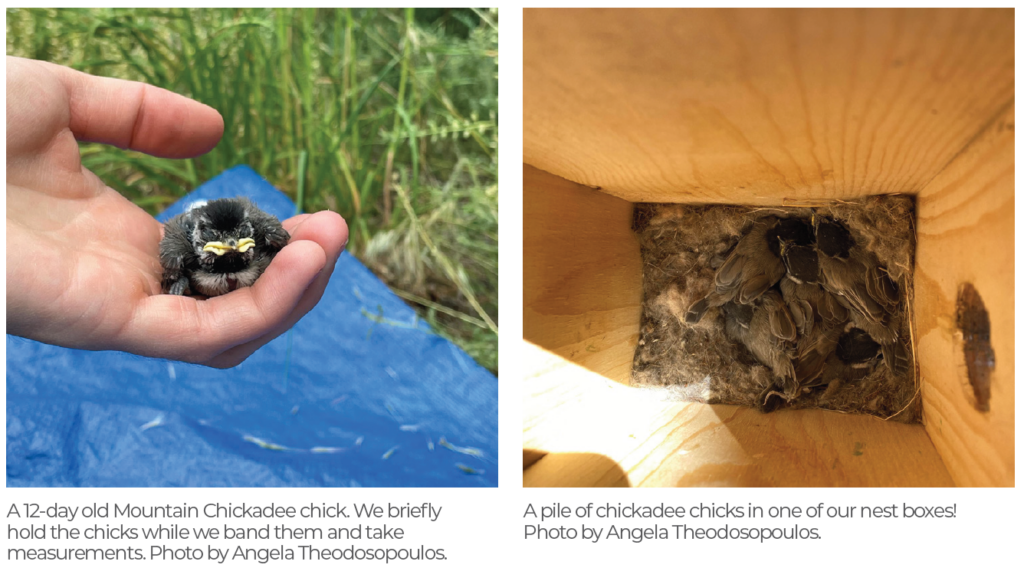CFO Grant Recipient Update: Angela Theodosopoulos
Research Season 2021
This past research season, I spent my time studying breeding Mountain and Black-capped chickadees in Boulder County. The work involved monitoring 368 nest boxes that my team and I have established in the area. We banded more than 250 chicks with USGS bands! We also collected morphometric data to help us determine how healthy the chicks were, and I took blood samples from both chicks and their parents to test for blood parasites.
This past year I discovered that chickadees in Boulder are experiencing infections with SGS1, a highly invasive strain of the avian malaria parasite (Plasmodium relictum) that has not previously been reported in Colorado. Avian malaria is a wildlife disease that affects birds that is caused by Plasmodium parasites. By conducting genetic testing, I found that SGS1 was likely introduced to Colorado from Europe. The findings will be published in Biology Letters and included in an article for Audubon. While we don’t currently know how chickadees respond to these infections, it is certainly a conservation concern.
Next research season I will explore the events that led to SGS1’s introduction to Colorado and the United States in collaboration with my colleagues at the Denver Museum of Nature and Science, the Smithsonian Institution and Lund University. Funding provided by Colorado Field Ornithologists allowed me to conduct my field research between May and July of 2021. The data that I collected will play an integral role in the completion of my dissertation. Thank you so much to all of the donors who made this work possible. Further, I’m incredibly grateful that I had the opportunity to mentor three undergraduate researchers and train them in field ornithology skills. This was important to me because I was unable to work with a field crew in 2020 due to COVID. While I won’t be working with chickadees this next research season, I will certainly continue my work studying birds and applying field ornithology skills as I help train the next generation of researchers.

